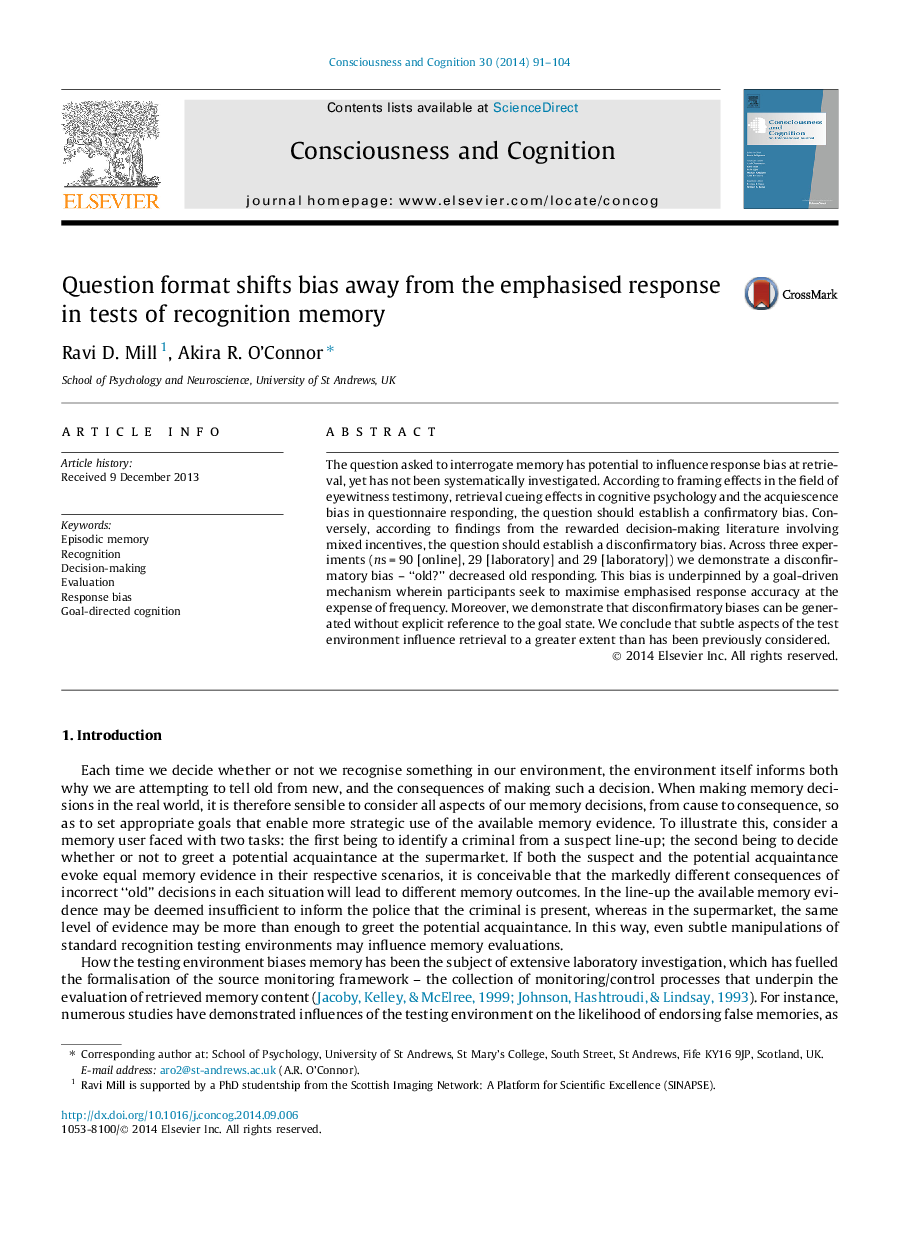| Article ID | Journal | Published Year | Pages | File Type |
|---|---|---|---|---|
| 7289720 | Consciousness and Cognition | 2014 | 14 Pages |
Abstract
The question asked to interrogate memory has potential to influence response bias at retrieval, yet has not been systematically investigated. According to framing effects in the field of eyewitness testimony, retrieval cueing effects in cognitive psychology and the acquiescence bias in questionnaire responding, the question should establish a confirmatory bias. Conversely, according to findings from the rewarded decision-making literature involving mixed incentives, the question should establish a disconfirmatory bias. Across three experiments (ns = 90 [online], 29 [laboratory] and 29 [laboratory]) we demonstrate a disconfirmatory bias - “old?” decreased old responding. This bias is underpinned by a goal-driven mechanism wherein participants seek to maximise emphasised response accuracy at the expense of frequency. Moreover, we demonstrate that disconfirmatory biases can be generated without explicit reference to the goal state. We conclude that subtle aspects of the test environment influence retrieval to a greater extent than has been previously considered.
Related Topics
Life Sciences
Neuroscience
Cognitive Neuroscience
Authors
Ravi D. Mill, Akira R. O'Connor,
